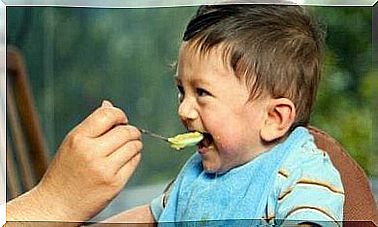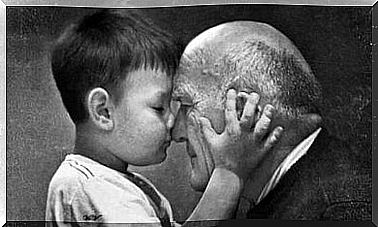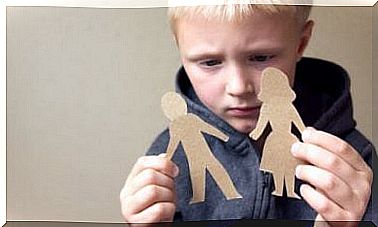7 Tips To Avoid Aggression In Children – Parenthood

Aggression in children is a manifestation of frustration, fear, sadness. It hides much more than the simple anger that can be seen with the eye. As parents, we need to be mindful of their emotional needs. We will be able to provide them with the well-being and the healthy environment they need to grow up happy.
There are many ways to avoid aggression in children. But for this, it is essential to be clear about what aggressive behavior is. Also, explain to him why we should not lose control in the face of this kind of demonstration.
To find out, you need to observe certain aspects of his behavior. For example, if your child is deliberately seeking to inflict physical or psychological harm on another child and even their parents, it could be an aggressive child.
To identify certain patterns of aggression in children, it is important to know that any intentional act of violence that manifests as kicking, scratching, biting, yelling or swearing is part of a problem that must be treated.
There are many ways to help a child cope with their aggression. Here are seven tips:
7 tips to channel aggression in children
1. Create an environment of trust
Try to keep an open channel of communication. In the latter must reign trust and respect. This gives the child a familiar climate of confidence. Your child should feel that he can freely express his emotions without being censured or criticized.
This climate helps them to drain their emotions. Indeed, if he feels really heard and understood in his home, this will move him away from a behavior full of aggression.
If the child begins to express himself, take the opportunity, when he has said everything he thinks, to explain to him that it is normal to feel annoyed by something. But that, however, the solution to its problems is not reached by violence.

2. Discover the source of their aggressiveness
To be able to nip this evil in the bud, it is advisable to observe the behavior of the little one.
The idea of this exercise is to identify the different causes that provoke aggression in children. Thus, several interesting aspects can be discovered. For example, the child may have low self-esteem.
He may also feel dethroned by the presence of a new brother. So since he doesn’t feel loved enough, he will get attention the wrong way.
3. Timely action can make a difference
When aggression in children affects others, especially their age, it is necessary to intervene. Indeed, we must help them resolve this situation. This way the child can bond and will not be rejected for his violent behavior.
Channeling time his emotions in the right way the will to change behavior becomes more rational behavior. A child should not be underestimated. So don’t wait until he starts showing more aggressive behavior to act.
Intervene as soon as you notice that he is feeling frustrated or angry. And if you notice him hitting or biting his brother, another child, or even an adult, stop him without hesitation. Let her see that this behavior is not helping her.
4. Find a way to generate success in your days
We all know the power of words. They can help a person raise realms or reduce a human being to nothing. So imagine all the good things that can happen in your child’s life when they are raised in emotional intelligence.
To help remedy aggression in children, it is advisable to reinforce positive values. Also, to teach them to express their emotions in an appropriate way. Congratulating them on their accomplishments is one way to make them feel happy.
A good way to praise him is to congratulate him on his accomplishments and efforts. For example, in the morning when the child makes his bed, praise him for doing so well. And if he needs a fix, use the good vibe the praise generates to tell him what you want him to do.
5. Be the role model for your child
A parent’s attitude when communicating or teaching something to a child should never be aggressive. You have to avoid this, first of all, because if you yell at your child, he won’t get the message.
Yelling or being aggressive only makes the child stuck and defensive. And the worst part is that the child who is raised in such an environment assumes that this is the right way to express himself.
If the child sees the parents screaming instead of talking, and the end of each discussion is crowned with a knock on a table or a door, he will imitate exactly the same thing in the future, when he loses patience.
Therefore, you need to be consistent with your behavior as a parent. You should also specify what you expect from the child.

6. Calmly manage any episode of aggression
When the child becomes aggressive towards a family member or friend, it is best to stop him and separate him from that person. It will always be better to separate him and isolate him to reflect on what he has done.
But if the violence is against you, the best option is to go and leave it alone. Keep in mind that at this point he is having an explosion of withheld emotions. For that, the word “reason” will not occur to him.
When there is a good atmosphere for discussion, let him know that his behavior was not appropriate. Give him time to think in his room and if necessary to apply corrective action. Do it as soon as possible.
7. Go to a specialist if you need help
If you have put these recommendations into practice and the results are still unfavorable, it is time to go to a child therapist who can find the cause of the aggressive behavior and offer help.









